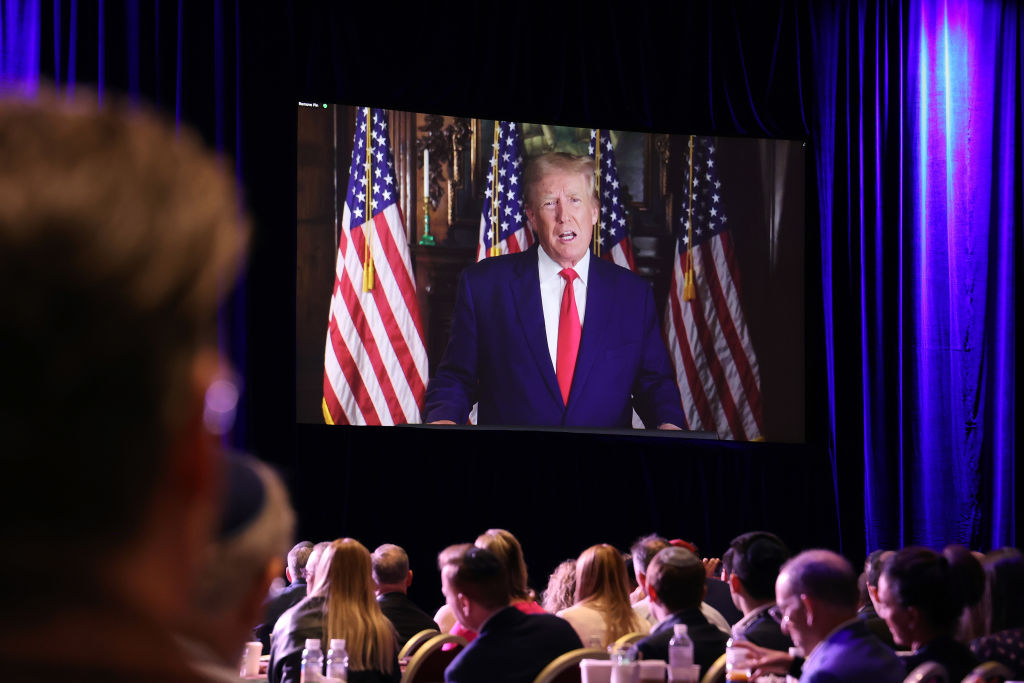Majority of Republicans don’t think antisemitism is a serious problem, says new poll
The Quinnipiac poll showed 73% of Democrats think antisemitism represents a growing threat to Jewish Americans

Former President Donald Trump spoke via video to the Republican Jewish Coalition conference in November, 2022. Photo by Getty Images
A new poll published on Wednesday showed a majority of Republicans don’t see the surge in antisemitic attacks and rising openly anti-Jewish rhetoric on social media as a serious problem.
According to the poll of 1,614 adults, conducted by Quinnipiac University between December 8–12 via landline and cell phones, 51% of Republican adults said prejudice against Jewish people in the U.S. today is not so serious or not a problem at all. And 44% of Republicans view it as a very serious or somewhat serious problem. The poll has a margin of error of plus or minus 2.6 percentage points.
Conversely, 51% of Democrats see antisemitism as a very serious problem, with 32% saying it’s somewhat a serious problem.
The poll comes days after President Joe Biden announced the launch of an interagency task force to develop a national strategy to combat antisemitism.
The FBI reported Monday that 63% of religious hate crimes in the U.S. are motivated by antisemitism. But the statistics missed data from law enforcement agencies in cities including Los Angeles and New York, two of the largest Jewish population center in the country. According to an Anti-Defamation League survey, there were 2,223 reported incidents of antisemitism across the nation last year, the highest number on record since the ADL began tracking them in 1979. Just in New York City, the New York Police Department documented a total of 662 incidents — including assaults, vandalism and harassment — motivated by anti-Jewish bias this year.
Doug Emhoff, the Jewish Second Gentleman, headlined a roundtable last week with Jewish leaders, to discuss ways to tackle the rise of antisemitism. An escalation of antisemitism led up to the event, which the White House said had been planned for weeks. In recent months rapper Kanye West, who changed his name to Ye, went on a tirade of antisemitism and Holocaust denial. And former President Donald Trump had dinner with West and Nick Fuentes, a prominent white nationalist. Trump refused to condemn either of them. Instead, he criticized Jewish leaders and echoed common antisemitic tropes, saying they “lack loyalty” and “should be ashamed of themselves,” for not appreciating his pro-Israel policies while he was in office.
Senate Majority Leader Chuck Schumer told Jewish leaders this week that officials must work together to fight antisemitism “with clarity and conviction” no matter the political disagreements.
The poll also showed that a majority of Republican respondents — 54% — don’t think antisemitism represents a growing threat to Jewish Americans. That is compared to 73% of Democrats who do think it endangers Jewish Americans.
















